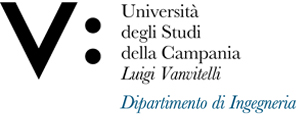Dino MUSMARRA
Insegnamento di IMPIANTI DELL'INDUSTRIA DI PROCESSO
Corso di laurea in INGEGNERIA GESTIONALE
SSD: ING-IND/25
CFU: 6,00
ORE PER UNITÀ DIDATTICA: 48,00
Periodo di Erogazione: Secondo Semestre
Italiano
| Lingua di insegnamento | ITALIANO |
| Contenuti | L'insegnamento presenta gli elementi di base per la comprensione degli schemi di processo e per il dimensionamento e la verifica di apparecchiature dei processi industriali e per l'analisi qualitativa e quantitativa di processi industriali a scala reale, considerando le migliori tecnologie disponibili per l’industria di processo. |
| Testi di riferimento | - Unit Operations of Chemical Engineering - Autori: L. McCabe, Julian C. Smith and P. Harriot - Casa editrice: McGraw-Hill Education; |
| Obiettivi formativi | L'insegnamento intende fornire agli studenti i primi strumenti conoscitivi per la comprensione di uno schema di processo, per affrontare i bilanci di materia e di energia su singole e multiple apparecchiature. Gli studenti, inoltre, acquisteranno le conoscenze fondamentali delle migliori tecnologie disponibili per l’industria di processo e le capacità di base per il dimensionamento e la verifica delle apparecchiature per operazioni unitarie ricorrenti nell'industria di processo. L'insegnamento ha, quindi, l’obiettivo di sviluppare negli studenti la capacità di valutare e confrontare le diverse soluzioni ad un dato problema dei processi industriali ed effettuare delle valutazioni qualitative e quantitative di processi industriali a scala reale. |
| Prerequisiti | Competenze attese: Analisi Matematica, Fisica, Chimica – Propedeuticità: |
| Metodologie didattiche | Lezioni frontali: Teoria (30 ore) ed esercitazioni (18 ore) |
| Metodi di valutazione | Prova orale -Valutazione degli elaborati progettuali |
| Altre informazioni | Contatti docente: |
| Programma del corso | Il programma del corso è articolato in: |
English
| Teaching language | English |
| Contents | The discipline presents the basic elements for understanding process schemes, for the design and verification of industrial process equipment and for the qualitative and quantitative analysis of real-scale industrial processes, focusing on the best technologies available for the process industry. |
| Textbook and course materials | - Unit Operations of Chemical Engineering - Authors: L. McCabe, Julian C. Smith and P. Harriot - Casa editrice: McGraw-Hill Education; |
| Course objectives | The discipline aims to provide students with the first cognitive tools for understanding a process scheme, dealing with mass and energy balances on single and multiple equipment. Students will also acquire fundamental knowledge of the best technologies available for the process industry and the basic skills for designing and verifying equipment of the process industry. The discipline has, therefore, the objective of developing in students the ability to evaluate and compare the different solutions to a given problem of industrial processes and to carry out qualitative and quantitative evaluations of industrial processes on a real scale. |
| Prerequisites | Expected expertise: Mathematical Analysis, Chemistry, Physics – Prerequisites: Mathematical Analysis, Linear Algebra, Analytic Geometry |
| Teaching methods | Oral classes: theory (30 hours) and exercises (18 hours) |
| Evaluation methods | Oral test - Assessment of design works. |
| Other information | Contact details: |
| Course Syllabus | The discipline program includes: |








